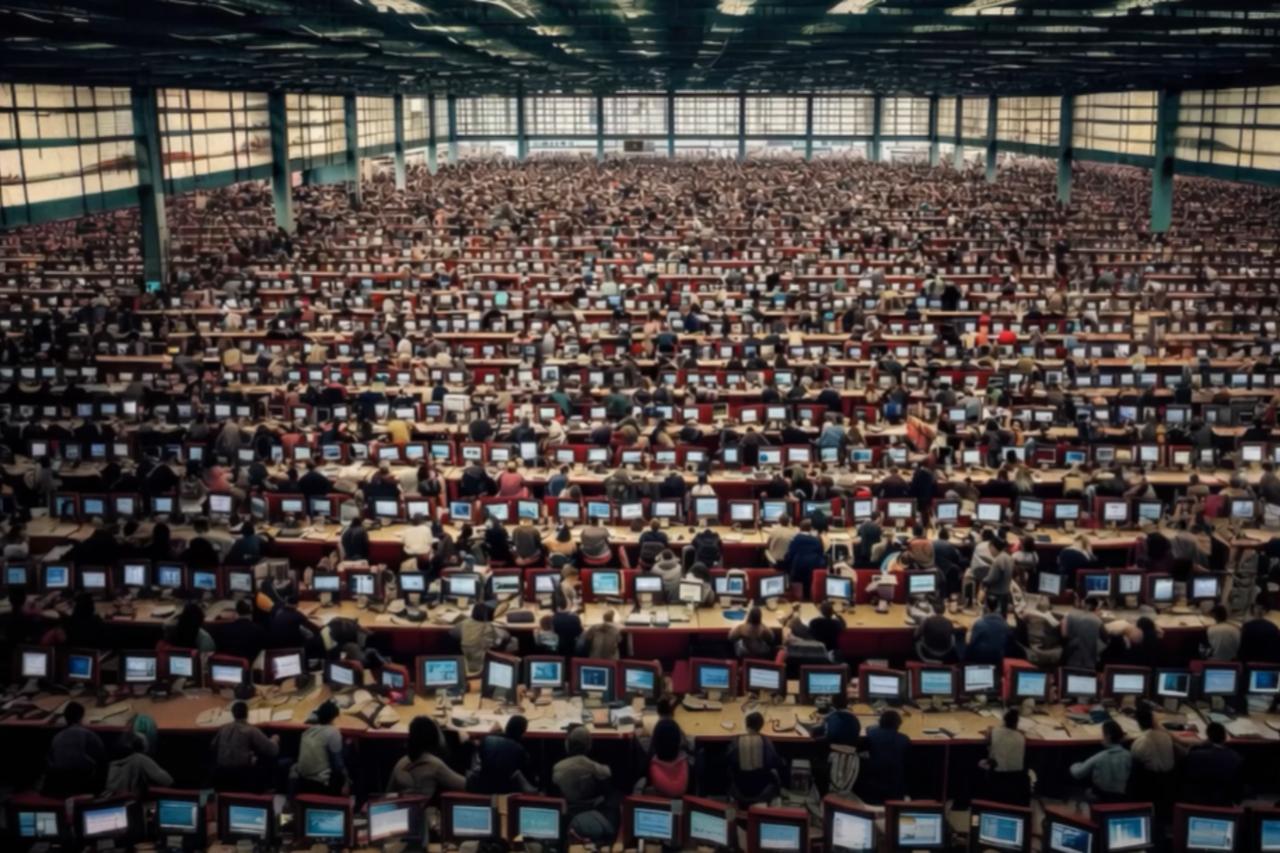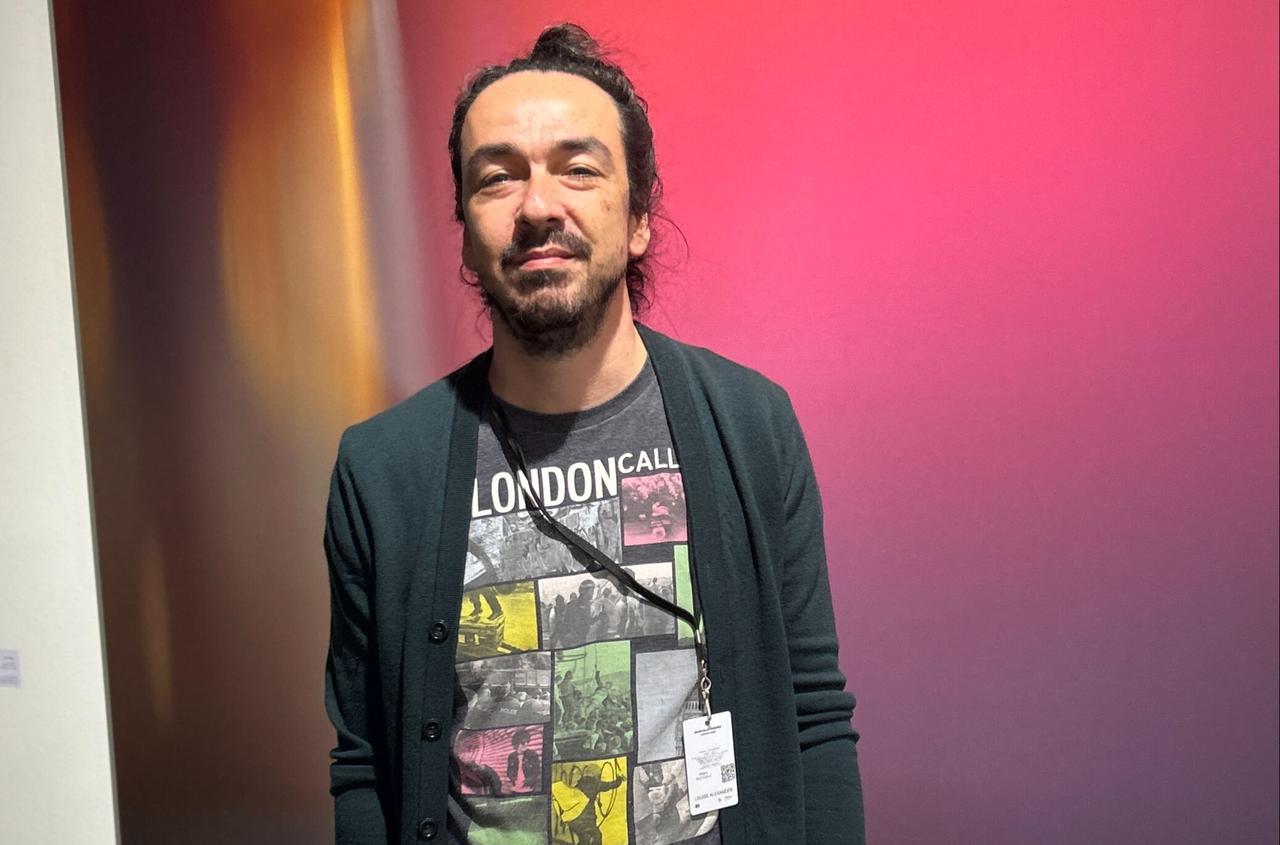
Artificial intelligence is becoming an increasingly powerful force in global cinema. Now, a Turkish artist has pushed the boundaries further by creating the world’s first entirely AI-generated feature-length documentary.
Titled Post Truth (Gercek Otesi), the groundbreaking film is the work of Alkan Avcioglu, a director also known for his digital art. Uniquely, it will also be the first AI film to receive a theatrical release.
Avcioglu spent 15 months developing the film’s visuals and audio, ultimately generating a pool of over 55 hours of content. He is now preparing to produce a fictional film using AI as well. We spoke with the director about his vision and process.
Your film Post Truth has drawn attention for its technique. What inspired the project?
"We live in a world where it's increasingly difficult to distinguish between what’s real and what’s fake. We’re lost in simulations, and reaching the truth feels almost impossible. This philosophical question has long intrigued me. I’ve explored these ideas in previous artworks, particularly how we navigate a post-truth society. That became the foundation for this film."
Why did you choose to build the film entirely using artificial intelligence?
"I’ve been working with AI for years. My visual style tends to bombard the viewer with details, and I aimed to do the same in the film. One reason I turned to AI was my belief that current art forms can no longer fully capture the complexity of our time.
I think the chaotic, fragmented perspectives AI offers are a perfect mirror of our current condition. We live in an era full of fakes—what better way to portray it than with fake imagery?"
What was the process like? What tools did you use to create the film with AI?
"I worked on the film for nearly two years, using around 15 different AI tools to generate both visuals and sound."
Was it difficult to 'communicate' your creative vision to AI systems?
"Since I wasn’t making a commercial but rather an art film that embraces the imperfect aesthetics of AI, I didn’t find it too difficult."

While you critique AI in the film, your message seems broader than that.
"Absolutely. My criticism goes beyond AI itself. I'm focused on the rational, efficiency-driven lens through which we now view the world—a lens that’s turning us into machines.
No one allows themselves to be idle anymore. My film challenges this state of mind. That said, I don't see technology as inherently harmful; my critique is about how we interact with it."
Your film also touches on the modern individual’s supposed free will—how they appear inquisitive, yet accept everything blindly.
"Yes, what I’m really trying to say is everything today, including ads, is tailored to us, so we think we’re making free choices. But in reality, we’ve become like robots—split into binary camps.
We once imagined technology would unite diverse cultures, yet now it feels like the whole symphony has been reduced to just two notes. We’ve become monotonous while believing in the illusion of diversity."
And what about freedom? Are we living in the kind of “most dangerous kind of slavery” that George Orwell described?
"I tend to agree. The world has turned into a massive content production factory. And we are the invisible workers inside it."
With such a systematic structure, is it even possible that there’s no central authority behind it all?
"Undoubtedly, there is a center. But it changes so quickly that we haven’t had the chance to fully understand its structure. In the past, when a monopolistic company began shaping culture, it could extend its reach everywhere and do as it pleased. That’s no longer so simple today. As a result, the world has become absurd—and the film reflects that absurdity."
Many directors aren’t optimistic about AI. I recently visited a director on set who believes he may be shooting his last ‘real’ film. How do you see AI changing the film industry?
"I think those fears are unwarranted. We’re only just beginning to see the potential of this technology, so I believe it’s too early for such negative outlooks. Every new technology causes growing pains but also opens doors to new possibilities.
When photography emerged, painting didn’t die—painters simply created new movements. AI will undoubtedly become widespread, but it will also give rise to new modes of storytelling."
Can you elaborate on what that means for cinema specifically?
"AI will likely reduce production costs for certain film genres, making them more accessible. On the flip side, we may also see a revival of 35mm analog films as a counter-movement. There will always be a balancing force, with alternative artistic responses emerging in opposition."